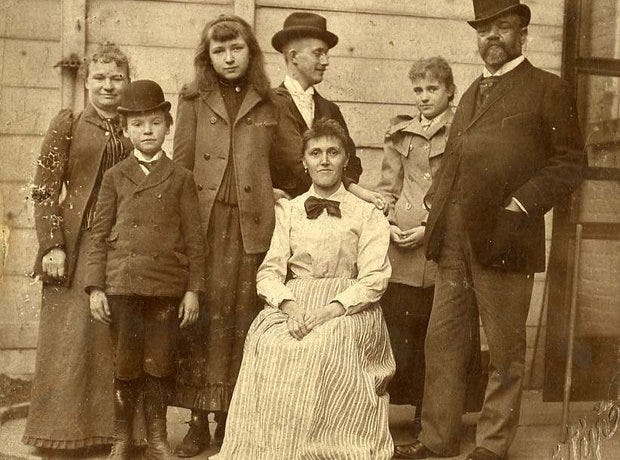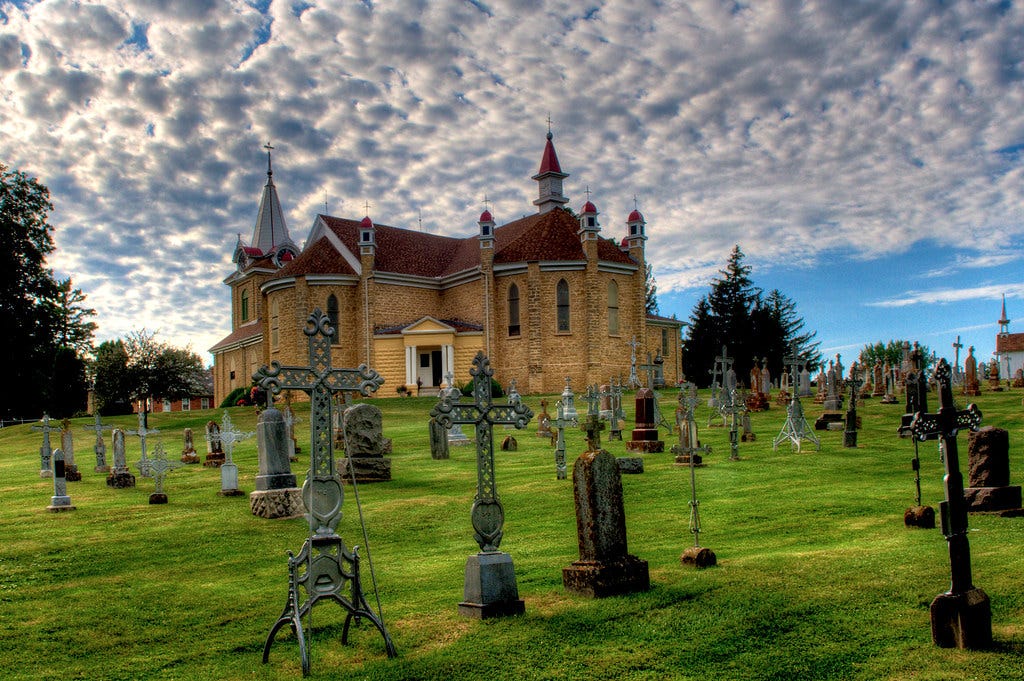
In an idyllic midwestern summer over two decades ago, a girlfriend and I spent our days playing house in a little town not too far from Spillville, Iowa, where the world-famous Antonín Dvořák and his family had spent their summer almost exactly 100 years prior, in 1893. In the mornings I’d go for a long bike ride before the heat, humidity, and languor of the afternoon would squelch any plans grander than a nap, and Spillville, being just about nineteen miles away, was a good long ride.
Visiting Spillville today isn’t much different than it would’ve been at the end of the 19th century and, in fact, the population has shrunk since then. It remains a predominantly Czech community and until it closed about ten years ago, the only restaurant in town was the Old World Inn, which served Czech style food, with Pilsner Urquell on tap. St. Wenceslaus Catholic Church is the oldest Czech Catholic church in the United States and the organ that’s in the choir loft is the same organ Dvorak would play every morning for matins service. Most of the grave markers are those incredibly ornate wrought iron ones you’d normally only see in central Europe.

Memories of spending time in Spillville came flooding back this morning when reading this wonderful article about how and why Dvořák decided to bring his family from New York City, where he was the head of the National Conservatory of Music, to this small town. Alongside Johannes Brahms, he was the leading composer of the day and he had been brought to the United States to help us discover our own American Music. With the cultural historian, Joseph Horowitz, and the national consortium of orchestras called, Music Unwound, I have twice conducted, Dvořák in America, which tells the fascinating story of Dvořák’s time in America through narration and a performance piece called, Hiawatha Melodrama.
What I’d like to share with you, however, are performances of the pieces Dvořák composed during his three years in the United States.
Symphony №9 “From the New World,” Bavarian Radio Symphony Orchestra, Mariss Jansons, conductor.
Concerto in B minor for Cello and Orchestra, Mstislav Rostropovich, cellist, London Philharmonic, Carlo-Maria Giulini, conductor
String Quartet №12 in F major “American,” Prazak Quartet
The American Flag, Cantata for Soloists and Orchestra, Joseph Evans (tenor), Barry McDaniel (baritone), St. Hedwig’s Cathedral Choir, RIAS Chamber Choir Berlin Radio Symphony Orchestra Michael Tilson Thomas.
Quintet №3 in E-flat Major “American” Roberto Diaz, viola, Dover Quartet
Silent Woods for Cello and Orchestra, Yo-Yo Ma, Boston Symphony Orchestra, Seiji Ozawa
Sonatina for Violin and Piano, Josef Suk, violin and Rudolf Firkusny,piano
